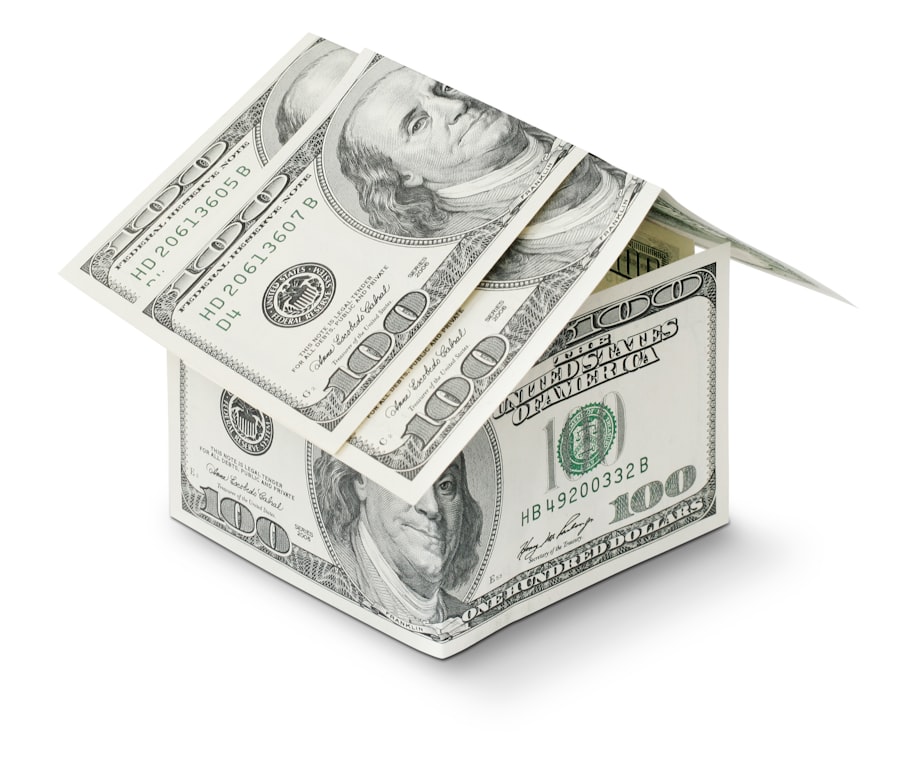When embarking on the journey of purchasing a mobile home, the initial purchase cost is often the first and most significant financial consideration. This cost can vary widely based on several factors, including the size, model, age, and condition of the mobile home. Newer models equipped with modern amenities and energy-efficient features typically command higher prices, while older homes may be more affordable but could require additional investment in repairs or upgrades.
For instance, a brand-new double-wide mobile home can range from $70,000 to over $100,000, while a used single-wide might be found for as little as $20,000 to $50,000. In addition to the base price of the mobile home itself, potential buyers should also consider associated costs such as taxes, registration fees, and any necessary inspections. These expenses can add a significant amount to the overall initial investment.
For example, many states require a sales tax on mobile home purchases, which can be as high as 7% to 10%. Furthermore, if the mobile home is being financed, lenders may require an appraisal to determine its value, which can incur additional costs. Understanding these various components of the initial purchase cost is crucial for prospective buyers to ensure they are financially prepared for the total investment.
Key Takeaways
- Initial purchase cost is just one part of the total expense of owning a mobile home.
- Land and utility costs must be included in the overall budget.
- Maintenance and repair expenses require ongoing financial planning.
- Financing options can affect affordability and monthly payments.
- Insurance, resale value, and community fees add to the long-term cost considerations.
Factoring in Land and Utilities
Once the initial purchase cost is understood, the next critical aspect to consider is where the mobile home will be situated. The choice between placing a mobile home on owned land versus renting a lot in a mobile home community can significantly impact overall expenses. Purchasing land can be a substantial investment in itself, with prices varying dramatically based on location, size, and zoning regulations.
In rural areas, land may be relatively inexpensive, while in urban settings, it can be prohibitively costly. Additionally, owning land often comes with responsibilities such as property taxes and maintenance. Utilities are another essential factor that must be factored into the overall cost of living in a mobile home.
Depending on the location, homeowners may need to connect to municipal water and sewer systems or rely on private wells and septic systems. Each option has its own set of costs and maintenance requirements. For instance, connecting to city utilities may involve significant upfront fees for installation and ongoing monthly bills for water, electricity, and gas.
In contrast, private systems may require periodic maintenance and inspections, which can add to long-term expenses. Understanding these utility considerations is vital for budgeting effectively and ensuring that the mobile home remains an affordable living option.
Budgeting for Maintenance and Repairs

Owning a mobile home comes with its own set of maintenance and repair responsibilities that should not be overlooked when budgeting. While mobile homes are often perceived as lower-maintenance than traditional houses, they still require regular upkeep to ensure longevity and comfort. Common maintenance tasks include roof inspections and repairs, plumbing checks, and HVAC system servicing.
For example, a roof replacement on a mobile home can cost anywhere from $1,000 to $5,000 depending on materials and labor costs. Moreover, it is essential to set aside funds for unexpected repairs that may arise over time. Mobile homes are susceptible to wear and tear just like any other dwelling; issues such as leaks, electrical problems, or structural damage can occur without warning.
Establishing a dedicated maintenance fund—typically recommended at 1% to 3% of the home’s value annually—can help homeowners manage these costs without financial strain. By proactively budgeting for maintenance and repairs, mobile homeowners can protect their investment and ensure their living environment remains safe and comfortable.
Considering Financing Options
| Financing Option | Interest Rate (%) | Loan Term (Years) | Down Payment (%) | Monthly Payment | Credit Score Requirement | Pros | Cons |
|---|---|---|---|---|---|---|---|
| Conventional Loan | 3.5 – 5.0 | 15 – 30 | 5 – 20 | Varies | 620+ | Lower interest rates, flexible terms | Requires good credit, higher down payment |
| FHA Loan | 3.0 – 4.5 | 15 – 30 | 3.5 | Varies | 580+ | Lower down payment, easier approval | Mortgage insurance required |
| VA Loan | 2.5 – 4.0 | 15 – 30 | 0 | Varies | Military service required | No down payment, no mortgage insurance | Only for eligible veterans |
| Personal Loan | 6.0 – 15.0 | 1 – 7 | 0 | Varies | 600+ | Quick approval, no collateral | Higher interest rates |
| Home Equity Loan | 4.0 – 8.0 | 5 – 15 | 0 | Varies | Good equity in home | Lower interest rates, tax benefits | Risk of foreclosure if unpaid |
Financing a mobile home can be more complex than securing a mortgage for a traditional house due to varying lending practices and regulations. Buyers must first determine whether they are purchasing a new or used mobile home since financing options differ significantly between these categories. New mobile homes often qualify for more favorable financing terms through specialized lenders or government-backed loans such as FHA loans.
These loans typically offer lower down payment requirements and competitive interest rates. Conversely, financing for used mobile homes can be more challenging. Many lenders view older models as higher-risk investments due to depreciation concerns.
As a result, buyers may need to seek out personal loans or chattel loans specifically designed for mobile homes. These loans often come with higher interest rates and shorter repayment terms compared to traditional mortgages. It is crucial for potential buyers to shop around for financing options and understand the terms associated with each loan type.
Consulting with financial advisors or mortgage brokers who specialize in mobile home financing can provide valuable insights into securing the best possible deal.
Exploring Insurance Costs
Insurance is another critical component of owning a mobile home that requires careful consideration. Mobile home insurance differs from standard homeowners’ insurance in several ways, primarily due to the unique risks associated with mobile homes. Factors such as location, age of the home, and whether it is located in a park or on private land can all influence insurance premiums.
For instance, homes situated in areas prone to natural disasters like hurricanes or floods may face higher insurance costs due to increased risk. When shopping for insurance, it is essential to compare policies from multiple providers to find coverage that meets specific needs at an affordable price. Basic policies typically cover damage from fire, theft, and certain natural disasters; however, additional coverage may be necessary for comprehensive protection against risks like flooding or earthquakes.
Homeowners should also consider liability coverage in case of accidents occurring on their property. By thoroughly researching insurance options and understanding coverage limits and exclusions, mobile homeowners can safeguard their investment against unforeseen events.
Evaluating Resale Value

The resale value of a mobile home is an important consideration for buyers who may not plan to stay in one place indefinitely. Unlike traditional homes that often appreciate over time due to market demand and location factors, mobile homes tend to depreciate in value more rapidly. This depreciation can be influenced by various factors including age, condition, and market trends within specific communities or regions.
To maximize resale value, homeowners should focus on maintaining their property in good condition and making strategic upgrades that appeal to potential buyers. For example, modernizing interiors with updated appliances or enhancing curb appeal through landscaping can make a significant difference when it comes time to sell. Additionally, understanding local market conditions—such as demand for mobile homes in specific areas—can help sellers price their homes competitively while still achieving a reasonable return on their investment.
Choosing between placing a mobile home in a community versus on private land involves weighing various pros and cons that can significantly affect lifestyle and finances. Mobile home communities often provide amenities such as swimming pools, clubhouses, and organized social activities that foster a sense of community among residents. These communities typically have established infrastructure for utilities and maintenance services which can simplify living arrangements for homeowners.
On the other hand, placing a mobile home on private land offers greater autonomy and flexibility regarding property use and modifications. Homeowners have the freedom to customize their living space without adhering to community rules or regulations that might restrict certain changes or additions. However, this independence comes with increased responsibilities such as managing utilities independently and maintaining the property without community support.
Ultimately, the decision between these two options should align with personal preferences regarding lifestyle, budget constraints, and long-term goals.
Anticipating Additional Expenses
In addition to the primary costs associated with purchasing and maintaining a mobile home, prospective buyers should also anticipate various additional expenses that may arise over time. These can include costs related to landscaping, pest control services, or even routine inspections required by local regulations. For instance, if the mobile home is situated in an area with heavy vegetation or wildlife activity, homeowners may need to invest in regular pest control services to protect their property from infestations.
Moreover, if the mobile home is located in a community with shared amenities or services—such as waste disposal or snow removal—there may be monthly or annual fees associated with these services that need to be factored into the overall budget. Understanding these potential additional expenses is crucial for creating a comprehensive financial plan that ensures long-term affordability while enjoying the benefits of mobile home living. By being proactive about anticipating these costs, homeowners can better prepare themselves for any financial challenges that may arise during their ownership experience.



